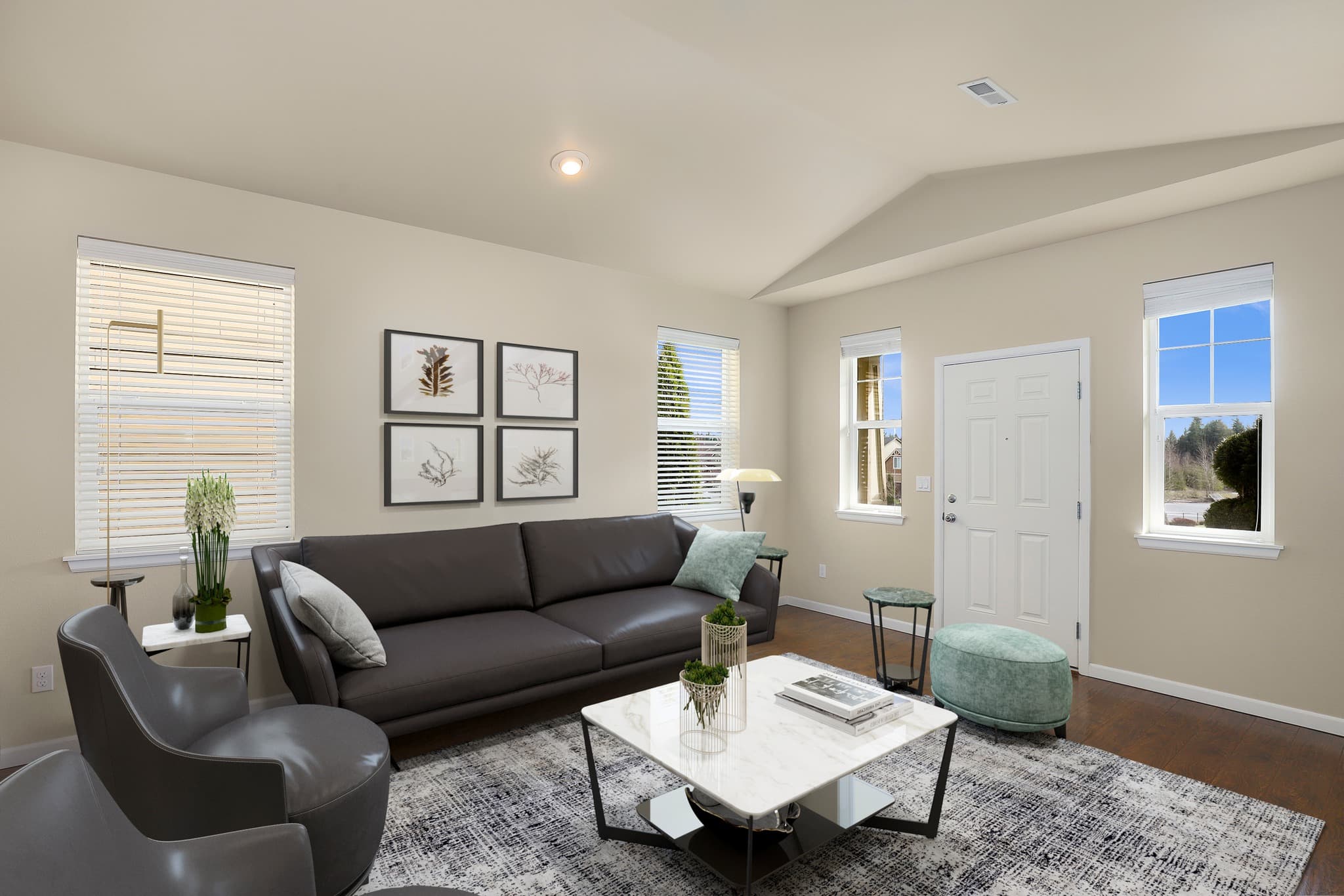21st-century technology has changed how we sell and promote real estate properties. Building complicated showrooms and prematurely spending on renovations are a thing of the past, and the virtual staging process has eliminated the need for elaborate setups or props.
Digital or virtual staging is the online equivalent of classic showroom techniques that improve real estate sales conversions or success rates. It’s a recent development, but home staging has been a part of long-standing real estate practices way before technology came into play.
[lwptoc]The Real Estate Staging Tradition
Before discussing the importance of virtual staging, it’s essential to talk about staging as a practice. Simply put, staging means readying the property or home for a possible client that involves cleaning, renovating, redecorating, rearranging furniture, dressing up the emptiness, and other aesthetic strategies to attract buyers into the house.
Before the internet and virtual staging, it was physically impossible or impractical to bring customers to the site, so developers constructed showrooms strategically in malls or other busy areas. This practice costs a lot more than if they did staging digitally.
You may be wondering what is virtual staging and how does it correlate to better sales possibilities? Does it also affect property pricing?
What is Virtual Staging?
The simple virtual staging meaning is a digital showroom designed to promote a house or property. It also refers to the technique of improving a room’s appearance in preparation for listings or social media. This method allows reimagination of space to accommodate a new lifestyle even without actual furniture or renovations.
You may be wondering why use virtual staging for real estate marketing? There are several practical and aesthetic reasons for doing it.
Why Use Virtual Staging?

Virtual staging is one of the best modern real estate marketing techniques incorporating creativity and psychology into real estate photos. Be purposeful and definitive when staging real estate listing photos to ensure that you don’t waste your time and effort.
Here are some of the benefits of digital home staging:
1. Gives a preview of the property and home
One of the critical virtual staging benefits includes a preview of what living in the space looks like. The sneak peek allows customers to imagine what their daily routine would look like within the vicinity. A good marketing tactic is to adjust the room aesthetics and ambiance to suit the possible clients or buyers.
Therefore, you should stage parts of the house that the new owner would frequent. For example, if you’re attracting young professionals, they might be interested in a home office or area for a work-from-home setup. You should stage the family room, kitchen, or shared living spaces to cater to small families.
2. Cost-effective staging method
Virtual staging costs relatively less compared to home staging and creating showrooms. Aside from the lesser cost, you have improved potential of attracting sales and clients, and a higher success probability means a better return on investment.
According to a 2017 National Association of Realtors (NAR) survey, the effect of virtual staging on real estate prices is an increased sale price of 1% to 15%. If you’re selling a $300,000 home, that’s a boost of $3,000 to $45,000. Virtual staging costs are only a fraction of the price increase you can charge.
3. Save time in redecorating and decluttering spaces
There are instances when the house’s previous owners haven’t packed or removed their personal effects before the real estate photography sessions. You should deploy creative methods to improve appearances in the real estate listing photos during such times.
The virtual staging process will eliminate waiting for redecoration and reconstruction because you can digitally declutter and change the room’s features. It’s a time-saving method that gives more preparation time to the seller by allowing advanced listing.
4. Fast completion
Speed is where the importance of virtual staging shines brightest. Modern technology has improved the time needed to edit real estate photos. Many companies like Phixer offer 24-hour virtual staging services, alleviating the pain of editing images yourself.
The actual real estate purchase procedure takes a long time, from listing to site visits and paperwork, so you welcome anything that expedites the entire flow. Virtual staging improves the appearance of your photos and allows you to post your property photos without tidying or waiting for movers to clear your items.
5. More aesthetic options to choose from
The virtual staging meaning changes according to use and form. Sometimes, people utilize virtual staging as a 2D tour, and other times, it’s just a way to present several options. It all boils down to virtual spaces having more options and appeal.
Here are some ideas on how you can virtually stage your home:
- Select one neutral theme like brown or beige, and add a non-neutral color like red, green, or blue as an accent.
- Choose a piece of furniture to serve as the space’s highlight and build a motif around it.
- Digitally remove all the existing decors, and leave the room bare except for white wall paint and minimal furnishings.
- Accessorize the room. Add art pieces to bare walls and rugs to bare floors.
The sky is the limit, as long as you ensure that all 3D-rendered furniture pieces are on the right scale and that the entire room uses the correct perspective. You can also take your virtual staging to the next level by editing your sky through virtual twilight, creating a homey ambiance.
Bottomline
There are a lot of virtual staging benefits, especially when you’re dealing with high-profile and expensive properties. Weigh your options carefully, and consider the value of a digitally-staged home compared to a bare real estate property without alterations.
Customers are more likely to trust a property staged according to their preferences and lifestyle, and they may make quicker decisions when they see it in image format. The sooner they buy the virtually staged home or property, the faster you can move on to selling others.
